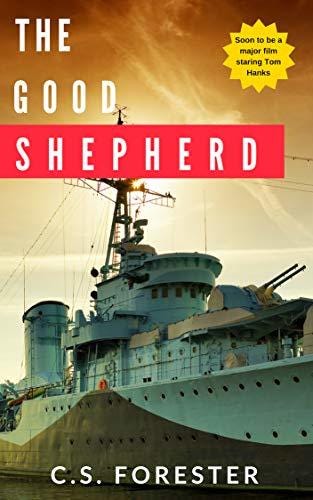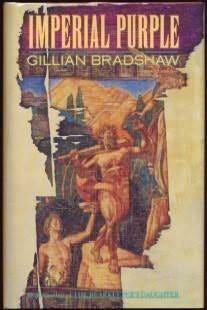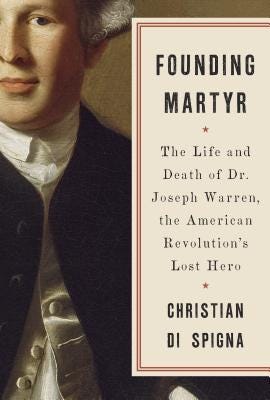The Good Shepherd, by C. S. Forester (261 pp; 1965)
Who should read this? People who like naval history or war stories.
The author of the Horatio Hornblower series writes this novel set on an Atlantic convoy during World War II. I wouldn't say that our protagonist, the captain of the naval escort, is the same as Hornblower - but he has distinct similarities, including the humungous sense of duty and the low self-image. He is of course having to think of a dozen things at once, from the U-boat threat to the convoy's arrangement to fuel supplies to each individual officer in his crew, and Forester keeps jumping between and noting each engagingly as they pass through his mind.
The most interesting thing about this is the pacing. The book covers one stretched-out attack over about 48 hours. There's no clear safety or rest until it's over; accordingly, there aren't any chapter breaks. We get brief headings in the middle of action as watches change, but the narrative keeps moving and the Captain keeps alert until they finally reach air cover and the Captain goes off duty. Then, finally, we have a chapter break and what's effectively a very brief epilogue.
This opened my eyes to the uncertainty of battle - even with sonar, the captain is guessing almost all the time on what the enemy is actually doing, and he has to guess in turn to try to place his much-more-cumbersome ship in the right place to guard the convoy. Meanwhile, he needs to keep track of exactly how much to trust each of his many officers, and keep doing all this while awake for 48 hours running. I don't know enough about naval life to say for sure this gives a real picture, but I trust Forester enough on this, and it rings true to me.
Imperial Purple, by Gillian Bradshaw (324 pp; 1988)
Who should read this? People who like engaging novels in the ancient world.
You'll note this's not the first Gillian Bradshaw book I've mentioned this year - I've been reading through her work roughly in the order she wrote it, and this is probably her best novel so far.
In the fifth-century Eastern Roman Empire, a Tyrian weaver is ordered to produce, in secret, a purple imperial cloak for a conspiracy to seize the throne. She's terrified of treason, but thinks it best to quietly comply and hope to pass unnoticed. But her husband thinks it best to report it to an imperial inspector in exchange for his oath of safety. It turns out that's more difficult than either of them thinks, as the story takes a sudden twist and becomes far larger than it seemed. And meanwhile, having so many certainties of comfortable life interrupted makes them reconsider their lives and what they mean to each other.
I really enjoyed this book. Bradshaw portrays the characters very well and multidimensionally - the weaver and her husband foremost, and also everyone they interact with on the quest, from soldiers to villagers to the Emperor's sister and other magnates. As I read through her books, it's fun to watch her characterization skills blossoming. She also has a penchant for showing us what different people are thinking during the same interaction, which can be weird to read at first; but once I'm used to it, it's very fun to watch as she brings to life their very different backgrounds.
At Home, by Bill Bryson (497 pp; 2010)
Who should read this? People who want to read detailed anecdotes about the history of daily life.
This's a survey of the history of housing in England and America, framed as a tour from room to room through Bryson's house (a luxurious early-nineteenth-century English country parsonage) with dives into the history of each room or items in it or things tangentially connected to it. We hear of such interesting topics as the state of English country parsons in the nineteenth century, the development of public sanitation and parks, and the science of entomology. Closer to housing, we hear about the development of separate rooms in the house in the first place (which relegated what was originally the main room to turn into a hallway leading between the various other rooms), the origin of upholstered and padded furniture, and the development of housecleaning through the Industrial Revolution.
This style of book - digressions on different topics tied together by a very loose theme - is one I don't tend to like. But, this subject is close enough to people - the people who invented the architectural or upholstering practices, and the people who lived with them - that so many of his stories here stick with me. The framing device of moving from room to room of the parsonage also held things together through the book. I enjoyed reading this.
Founding Martyr: The Life and Death of Dr. Joseph Warren, by Christian di Spigna (336 pp; 2018)
Who should read this? People interested in the American Revolution and the Patriot cause building up to it.
Dr. Joseph Warren was a foresighted Patriot in 1770's Massachusetts who staunchly favored independence throughout the gradual rise in tensions leading up to the American Revolution. Keeping quiet about that, though, he stirred up popular fervor against British measures at each step, and took the lead in numerous revolutionary organizations. Meanwhile, somehow, he kept the respect of both sides (and kept patients from both sides) up to late 1774, mere months before war broke out.
And then - while sitting as President of the Provincial Congress, the chief executive of the state's revolutionary government - Warren ran down to carry a gun on the front lines of every battle around Boston after the war started at Lexington and Concord. He survived the first several skirmishes, but a bullet finally caught him as he was keeping order in the Patriots' retreat off Bunker Hill. Surprisingly, he clearly hadn't considered the possibility of dying - he left his affairs in disarray, his fiancé with no rights to his estate, and even left secret documents in his pocket for the British to loot.
This short biography emphasizes Warren's importance in the Patriot cause, arguing that he should be called a Founding Father despite not surviving to independence. They've convinced me. What stands out most to me about his importance is how Warren pushed forward the Patriot cause over years from the Boston Massacre to the Tea Party through many other smaller events that most histories fast-forward over. Yet, those years were crucial. Thanks largely to Warren, more and more people gradually came around to the Patriot cause and stayed there even when things seemed quiet. When war broke out, the Provincial Congress (and similar congresses in other states) were in control of nearly all New England where British troops weren't currently standing. Much of was that was thanks to Dr. Joseph Warren.








Oh my, thanks for reading "The Good Shepard" In my mind it's Hornblower meets Ivan Denisovich. Surviving a day (or two) and doing your duty.